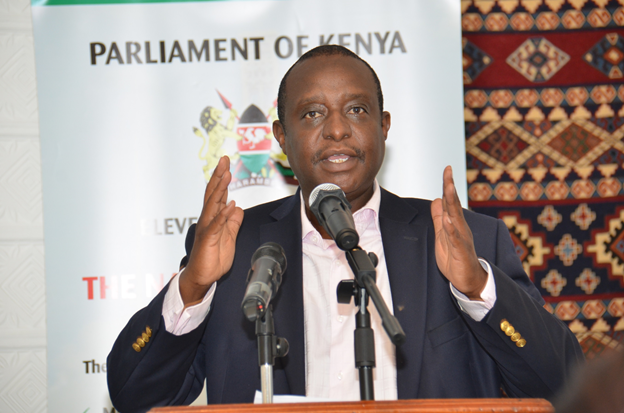Share this
Kenyans Stare at a Possible Increase on Money Transfers to 20%
After rejecting the Finance Bill 2018 last week, President Kenyatta made various recommendations in his memorandum regarding the VAT on petroleum products and other matters that he feels the National Assembly did not handle appropriately with regards to addressing the budget deficit.
For instance, a part of the memorandum reads:
“In the course of approval of the Finance Bill 2018, the National Assembly removed other policy measures that had a revenue impact. In sum, the Finance Bill, as currently approved by Parliament, has created a funding gap of Sh48.6 billion. This is in addition to Sh18.9 billion in the Appropriation Bill 2018. We are, therefore, looking at a budget funding gap of Sh67.5 billion in the FY2018/2019.”
VAT On Petroleum Products
In the memorandum, the President notes that the extension of VAT on fuel for another two years will affect the “estimated Sh35 billion expected to be collected by the end of June 2019.”
The memorandum proposes amending Section 5, Subsection 2 of the VAT Act 2013 to read: “The tax rate in the case of the petroleum products listed in Section B of Part I of the First Schedule, eight per cent of the taxable value effective from the date of assent provided that the taxable value in respect of these goods shall exclude excise duty, fees, and other charges.”
President Kenyatta also suggests an anti-adulteration levy on illuminating kerosene in order to harmonize the price of kerosene to that of diesel.
Excise Duty on Money Transfers
The memorandum also recommends increasing the excise duty charged on money transfer fees by mobile money operators from 12 per cent to 20 per cent of their excisable value. In addition, the President proposes a 15 per cent rate to be charged on telephone and internet data services.
The proposed money transfer charge comes after tax on mobile money transfers was increased from 10 to 12 per cent this year.
Mobile operators such as Safaricom have already implemented this increase, which has resulted in Kenyans paying more to withdraw and transfer money via mobile phones. As a result, a further increase in excise duty could see the financial pressure on Kenyans added to an unbearable levels mainly because a lot of Kenyans rely on mobile money to make transactions each day.
These recommendations are meant to bridge a budget deficit of Sh7.6 million.
Betting, Gaming & Lotteries Tax
In May this year, the National Assembly turned down Treasury’s proposal to slash the tax on betting, gaming, lotteries, and prize competition from 35 per cent to 15 per cent. Now, the President’s memorandum is still proposing the same reduction.
Should Parliament approve this proposal, the Betting, Lotteries and Gaming Act will be amended to reflect the change.
Treasury also introduced this year a 20 per cent winning tax through the Income Tax Act.
National Housing Development Fund Contributions
The memorandum observes that Parliament rejected the proposal for employees and employers to contribute to the National Housing Development Fund.
This is a fund that was introduced through the Housing Act to support the government’s affordable housing agenda under the Big Four Plan.
The memorandum, therefore, proposes that employers should contribute 1.5 per cent of the employees’ basic salary and that “the employee’s contribution will be 1.5 per cent of the monthly basic employee’s salary.” The proposal also adds that the contribution should not surpass Sh5,000 monthly.
The contributions shall help employees to own a home under the affordable housing scheme which aims to build 500,000 housing units.
However, for employees who have contributed to the fund but are not eligible for affordable housing, their contributions will be transferred to a pension scheme upon retirement or after 15 years. The contributions can also be transferred to a spouse or dependent children, to another person registered and eligible for affordable housing, or ineligible employees can choose to receive the contributions in cash after tax deductions are made.
Failure to contribute to the fund each month will attract a penalty of five per cent of the contributions.
The Appropriation Act
To further address the financing gap, the President has proposed the amendment of the Appropriation Act by cutting down the National Government’s expenditure by at least Sh55 billion.
In his state-of-the-nation address last week, President Kenyatta proposed the reduction of government spending in hospitality, foreign and domestic travel, and training and seminars.
Parliament is this week debating these proposals as Kenyans wait for a verdict either against or for the memorandum.




















